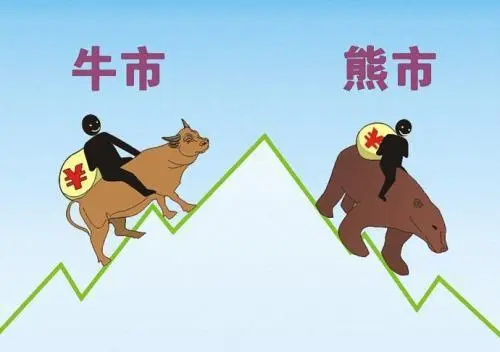EU Launches Anti-Dumping Probe on Chinese Headless Screws: A Deep Dive into the Implications
Meta Description: EU initiates anti-dumping investigation into headless screws from China, impacting CN codes 7318 15 42 & 7318 15 48. Explore the details, timeline, potential consequences, and expert analysis of this significant trade dispute. Learn about the implications for businesses and consumers.
Forget the jargon, let's get down to brass tacks. The EU's recent announcement regarding headless screws from China has sent ripples through the industry – and rightly so! This isn't just another trade spat; it's a potential game-changer for manufacturers, importers, and even the average consumer. We're talking about the tiny, often overlooked, but utterly crucial components that hold countless products together. Think about your furniture, your appliances, even your car – they all rely on these seemingly insignificant fasteners. The EU's decision to launch an anti-dumping investigation could lead to significant tariffs, altering market dynamics and potentially impacting the price of goods across Europe. This in-depth analysis will cut through the bureaucratic noise, providing clear, concise, and actionable insights into this developing situation. We'll examine the investigation's timeline, potential outcomes, and what this means for businesses both inside and outside the EU. Prepare for a detailed look at the legal framework, the economic considerations, and the strategic implications of this high-stakes trade battle. Buckle up – it's going to be a fascinating ride!
Understanding the EU's Anti-Dumping Action Against Chinese Headless Screws
The European Commission's decision to initiate an anti-dumping investigation into headless screws originating from China is a significant development with far-reaching consequences. This move, spurred by a formal complaint from the European Industrial Fasteners Association (EIF) on September 2nd, 2024, directly targets screws with CN codes 7318 15 42 and 7318 15 48. The investigation covers a critical period: the dumping investigation period runs from July 1st, 2023 to June 30th, 2024, while the injury investigation spans from January 1st, 2021 to the end of the dumping investigation period.
This isn't a knee-jerk reaction. The EIF, representing a significant portion of the European fastener industry, has presented compelling evidence alleging that Chinese producers are dumping headless screws into the EU market – selling them at unfairly low prices, undercutting European competitors, and causing material injury to the EU industry. This is a serious accusation with potentially devastating effects on European businesses. The evidence submitted likely includes detailed financial data, market share analyses, and expert testimony to support their claims. The EU Commission will now meticulously examine this evidence to determine whether the allegations hold water.
The Timeline: What to Expect
The EU Commission's investigation process is rigorous and transparent, adhering to specific timelines. The preliminary determination is anticipated within seven months, with a maximum timeframe of eight months. This means we can expect a preliminary ruling sometime in the Spring or early Summer of 2025. This initial decision will determine whether sufficient evidence exists to support the claims of dumping and injury. If the preliminary ruling is affirmative, provisional anti-dumping duties may be imposed.
Following the preliminary findings, a full investigation ensues, culminating in a final decision. This final determination will dictate whether definitive anti-dumping duties will be levied on Chinese headless screws entering the EU. The entire process is fraught with complexities, requiring extensive analysis of trade data, economic modeling, and legal arguments. It's a marathon, not a sprint.
Impact on European Businesses and Consumers
The potential consequences of this anti-dumping investigation are multifaceted. For European producers of headless screws, a positive ruling could provide much-needed relief from unfair competition, potentially leading to increased market share and profitability. However, the impact on consumers is less clear-cut. If anti-dumping duties are imposed, the price of goods incorporating these screws could rise, affecting everything from household appliances to automobiles. This price increase could potentially dampen consumer spending and negatively impact the overall economy. The balance between protecting domestic industries and ensuring affordable goods for consumers is a delicate one that the EU Commission must carefully consider.
Navigating the Regulatory Landscape: A Guide for Businesses
Businesses involved in the import and export of headless screws must closely monitor the progress of this investigation. Understanding the nuances of EU anti-dumping regulations is crucial for compliance and mitigating potential risks. This means staying informed about the Commission's updates, consulting with legal and trade experts, and preparing for potential changes in tariff structures. Proactive strategies are essential to navigate this challenging environment.
The Future of Headless Screws in the EU Market
The outcome of this investigation will have significant implications for the future of the headless screw market within the EU. A definitive anti-dumping duty could reshape the market landscape, potentially leading to a shift in sourcing strategies for European manufacturers. They might explore alternative suppliers outside of China or invest more heavily in domestic production. This could have both economic and geopolitical ramifications. The EU’s actions send a clear signal regarding its commitment to fair trade practices and protecting its domestic industries.
Frequently Asked Questions (FAQs)
Q1: What are headless screws?
A1: Headless screws, also known as countersunk screws, are screws without a visible head. They are designed to sit flush or slightly below the surface of the material they fasten. Their low profile makes them ideal for various applications where a smooth surface is desired.
Q2: Why is the EU investigating Chinese headless screws?
A2: The EU is investigating based on claims by the European Industrial Fasteners Association that Chinese producers are dumping headless screws into the EU market at unfairly low prices, causing injury to the European industry.
Q3: What is the timeline for the investigation?
A3: The preliminary ruling is expected within 7-8 months, with a final decision following further investigation.
Q4: What are the potential consequences of the investigation?
A4: If dumping is confirmed, anti-dumping duties could be imposed on Chinese headless screws imported into the EU, potentially leading to price increases for consumers and changes in sourcing strategies for European businesses.
Q5: How will this affect consumers?
A5: Increased prices on goods using these screws are a possibility.
Q6: Where can I find updates on the investigation?
A6: The European Commission's website is the best source for official updates and announcements.
Conclusion
The EU's anti-dumping investigation into Chinese headless screws is a complex issue with significant implications for both businesses and consumers. While the outcome remains uncertain, it underscores the importance of fair trade practices and the ongoing challenges of global trade relations. Staying informed about the developments in this case is crucial for anyone involved in the production, import, or export of fasteners within the EU market. The coming months will be critical in shaping the future of this important component in countless industries. Let's wait and see how this unfolds. It’s a situation that warrants our continued attention.



